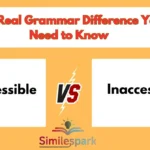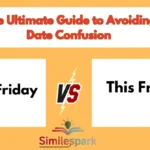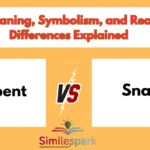English learners often get tangled up with “whichever” and “whatever.” Both look similar, sound alike, and even belong to the same family of words — the –ever compounds — but their meanings aren’t identical.
The good news? Once you understand the logic behind each, you’ll never confuse them again.
This guide breaks down the differences clearly with examples, tables, rules, and real-world usage so you can confidently decide when to use whichever and when to use whatever.
Understanding the Basics of “Whichever” and “Whatever”
At first glance, both “whichever” and “whatever” seem to mean any of something. The subtle distinction lies in how wide that “any” is.
- “Whichever” refers to a specific, limited group of choices.
- “Whatever” refers to anything at all, without limits.
Think of it this way:
“Whichever” is like picking a flavor from a menu.
“Whatever” is like saying bring me anything edible.
Quick Comparison Snapshot
| Word | Refers To | Used When | Example |
|---|---|---|---|
| Whichever | One (or more) from a known set | Options are defined | “Take whichever road leads to the city.” |
| Whatever | Anything, no limits | Options are open | “Do whatever you want this weekend.” |
Both words can function as determiners, pronouns, or conjunctions, depending on how they appear in a sentence. But their scope and tone are what really set them apart.
“Whichever” — Meaning, Grammar, and Usage
Meaning and Core Function
“Whichever” introduces a choice between defined possibilities. It’s specific and limited. You use it when you or the listener already know the available options.
Examples:
- “You may take whichever route you prefer.”
- “Whichever team wins will advance to the finals.”
- “Choose whichever shirt matches your jeans.”
Here, the choices are known or visible — routes, teams, shirts. The speaker implies a finite selection.
Grammar Rules for “Whichever”
“Whichever” serves as either a determiner or a pronoun.
| Role | Example | Explanation |
|---|---|---|
| Determiner | “Take whichever pen you like.” | Modifies the noun pen |
| Pronoun | “Whichever you choose will be fine.” | Replaces the noun phrase |
Key Grammar Points:
- Always relates to a limited set.
- Often introduces dependent clauses: “Whichever way you turn, the view is stunning.”
- Can express conditions or choices.
- Used in both formal and neutral contexts.
Common Usage Contexts
You’ll often find whichever in sentences that involve:
- Instructions: “Click whichever link works best.”
- Options: “Pick whichever color suits you.”
- Decisions or preferences: “Whichever restaurant you choose, I’m happy.”
Formality note: It’s perfectly fine in academic, professional, and casual writing.
Examples of “Whichever” in Sentences
| Sentence | Meaning | Tone | Context |
|---|---|---|---|
| “Whichever car you choose, ensure it’s insured.” | From limited car options. | Neutral | Advice |
| “You may use whichever program is installed.” | Refers to available software. | Formal | Office instruction |
| “Whichever one you pick, I’ll support you.” | Indicates emotional support. | Warm | Personal choice |
Table: Examples of “Whichever”
| Type | Example | Meaning |
|---|---|---|
| Determiner | “Take whichever book you want.” | Choosing from visible or known options |
| Pronoun | “Whichever is cheapest, buy that.” | Refers to one from known group |
| Clause | “Whichever way you go, be careful.” | Direction-based condition |
“Whatever” — Meaning, Grammar, and Usage
Meaning and Core Function
“Whatever” is broader — it refers to anything, everything, or all possibilities, often without defining boundaries.
Examples:
- “You can eat whatever you like.”
- “Whatever happens, don’t panic.”
- “Do whatever feels right.”
Here, the speaker doesn’t limit the options. Whatever covers everything that fits the category.
Grammar Rules for “Whatever”
Like whichever, “whatever” functions as a determiner, pronoun, or conjunction.
| Role | Example | Explanation |
|---|---|---|
| Determiner | “Choose whatever color you prefer.” | Refers to any color, no limit |
| Pronoun | “Do whatever you want.” | Replaces noun phrase |
| Conjunction | “Whatever he says, don’t believe him.” | Connects clause expressing condition |
Grammar Tips:
- Commonly used when options are not specified.
- Can express freedom, indifference, or generalization.
- Tone varies: formal, neutral, or dismissive (“Whatever!”).
Usage Contexts
| Context | Example | Tone |
|---|---|---|
| Giving permission | “Eat whatever’s in the fridge.” | Friendly |
| Expressing indifference | “Whatever, it doesn’t matter.” | Casual/slang |
| Emphasizing inclusiveness | “Take whatever steps are necessary.” | Formal |
| Conditional | “Whatever you decide, I’ll support you.” | Supportive |
Examples of “Whatever” in Sentences
| Sentence | Meaning | Tone | Context |
|---|---|---|---|
| “Wear whatever makes you happy.” | All clothing options open. | Positive | Everyday |
| “Whatever you say, boss.” | Agreement, possibly sarcastic. | Informal | Conversational |
| “Whatever the cost, we’ll continue.” | No limits on expense. | Serious | Motivational speech |
Table: Examples of “Whatever”
| Function | Example | Explanation |
|---|---|---|
| Determiner | “Take whatever time you need.” | Refers to unlimited time |
| Pronoun | “Do whatever pleases you.” | No restricted choice |
| Conjunction | “Whatever he does, he succeeds.” | Expresses condition or result |
Key Differences Between “Whichever” and “Whatever”
Core Contrast
| Feature | Whichever | Whatever |
|---|---|---|
| Scope | Specific and limited | Broad and unlimited |
| Tone | Polite, selective | Neutral or expressive |
| Context | Defined options | Open or undefined |
| Usage | Choices and conditions | Freedom or generality |
| Example | “Whichever dress you choose.” | “Whatever dress you like.” |
Contextual Comparison
Let’s compare both in identical sentence patterns to see the nuance:
| Sentence Pair | Difference |
|---|---|
| “Whichever path you take will lead to town.” | Limited known paths. |
| “Whatever path you take will lead to town.” | Any possible path, even unknown. |
| “You can buy whichever fruit you want from the basket.” | Choice restricted to available fruits. |
| “You can buy whatever fruit you want.” | Any fruit anywhere, no limits. |
In essence:
- Whichever = specific, known selection.
- Whatever = wide, unrestricted freedom.
Related Words Learners Often Confuse
Both words belong to the “–ever” family, which includes others like whoever, whenever, wherever, however — all with similar meanings of any person/time/place/way.
| Word | Refers To | Example | Meaning |
|---|---|---|---|
| Whoever | Any person | “Whoever calls, take a message.” | No specific person |
| Whenever | Any time | “Come whenever you can.” | Flexible timing |
| Wherever | Any place | “Sit wherever you like.” | Any location |
| However | Any way | “Solve it however you prefer.” | Any method |
These words all share a sense of freedom or openness, but each anchors to a specific category (person, time, place, etc.).
Why These Differences Matter
Using the wrong word can completely alter your meaning or tone. In professional writing, this matters a lot.
Examples:
- “Whichever candidate you vote for” implies a known list of candidates.
- “Whatever candidate you vote for” sounds broad or careless — like the choice doesn’t matter.
In academic writing:
“Whichever” fits better when you’re referring to known data sets or controlled variables.
“Whatever” fits open-ended scenarios or generalizations.
Tone sensitivity:
- “Whichever” sounds polite and respectful.
- “Whatever” can sound rude or dismissive when spoken sharply.
Common Mistakes (and How to Fix Them)
Mistake 1: Using “whichever” when no options exist
❌ Wrong: “Whichever movie comes out next, I’ll see it.”
✅ Correct: “Whatever movie comes out next, I’ll see it.”
Why: The options are unknown; “whatever” fits the open context.
Mistake 2: Overusing “whatever” in formal writing
❌ Wrong: “You can submit whatever format you like.”
✅ Correct: “You can submit whichever format is required.”
Why: “Whatever” feels too casual in structured contexts.
Mistake 3: Confusing tone in speech
“Whatever!” — often means dismissal or disinterest.
Avoid it in professional or serious discussions.
Quick Quiz: Practice Section
Choose “whichever” or “whatever” to complete each sentence.
- _______ choice you make, I’ll respect it.
- Take _______ book you want from the shelf.
- _______ you decide, let me know before Friday.
- You can order _______ meal fits your diet plan.
- _______ road you take, you’ll end up in the same town.
Answers:
- Whatever
- Whichever
- Whatever
- Whatever
- Whichever
Case Study: Real-Life Use in Literature & Media
Writers and speakers use whichever and whatever to shape tone and focus.
Literature Example
“Whichever road you take, you must walk it alone.”
— Robert Frost (paraphrased from “The Road Not Taken”)
Interpretation: Reflects known paths — a choice among visible possibilities.
Speech Example
“Whatever challenges we face, we will overcome them together.”
— Common theme in motivational speeches
Meaning: Open-ended, inclusive, and uplifting — not limited to specific challenges.
Pop Culture Example
In movies and songs, “whatever” often shows rebellion or sarcasm, while “whichever” rarely appears in slang.
- Whatever! = rejection, attitude, or humor.
- Whichever = formal or neutral tone.
FAQs About “Whichever vs Whatever”
What is the main difference between “whichever” and “whatever”?
“Whichever” limits the choice to known options, while “whatever” opens it to anything or everything.
Can I use “whichever” and “whatever” interchangeably?
Not usually. They overlap slightly but depend on context. “Whichever” suits defined sets; “whatever” suits open choices.
Is “whatever” considered informal?
Yes, in some contexts. It’s acceptable in writing but can sound dismissive when spoken casually.
When should I use “whichever” in a sentence?
Use it when choices are specific — for example, “Take whichever dress matches your shoes.”
What are other “–ever” words in English?
Other words include whoever, wherever, whenever, however, and whichever. Each corresponds to a category (person, place, time, way).
Conclusion
“Whichever” and “whatever” may share the same –ever ending, but their scope and precision differ sharply.
- Use whichever when choices are known and limited.
- Use whatever when anything goes or boundaries don’t exist.
When in doubt, ask yourself: Are the options defined or open? That single question will instantly guide your choice.
Mastering these subtle differences adds clarity, tone control, and natural flow to your English — exactly what makes your speech and writing sound polished.










